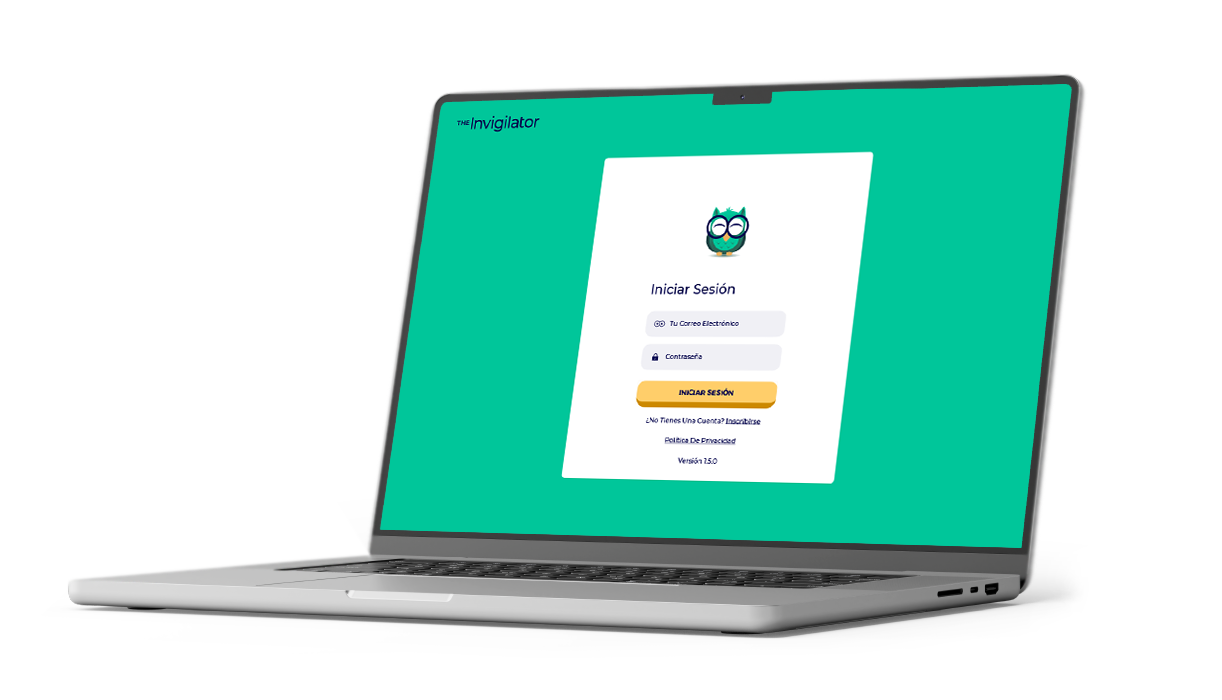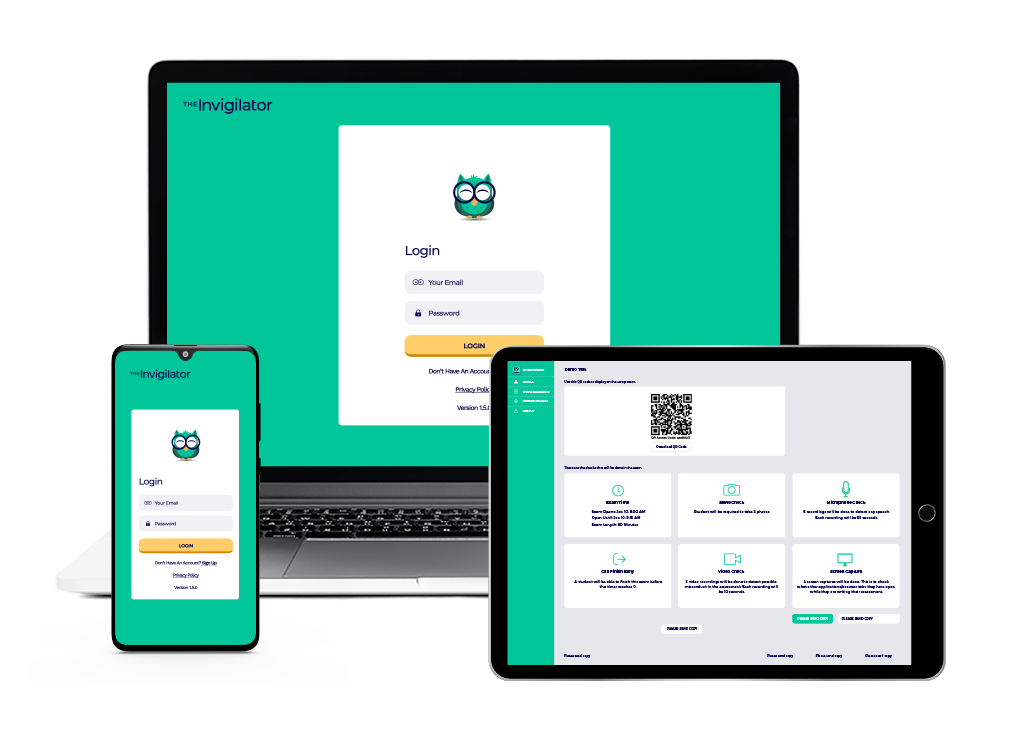The world of education is undergoing a transformation, driven by advancements in technology and the need for flexible learning solutions. Among these changes, secure online exams have emerged as a cornerstone of modern education, enabling institutions to maintain academic integrity while embracing the advantages of digital learning. With the integration of exam integrity software and digital examination tools, secure online exams are revolutionising the way assessments are conducted, offering a solution that meets the demands of today’s educational landscape.
1. The Shift Towards Online Exams
In recent years, the adoption of online learning has accelerated, fuelled by the need for accessible and flexible education. This shift has necessitated the development of secure online exams to ensure that students are assessed fairly and effectively in remote settings.
Why Secure Online Exams Are Essential:
- Maintaining Academic Integrity: Online exams need to replicate the security measures of traditional in-person assessments to prevent cheating and uphold academic standards.
- Supporting Remote Learning: With students accessing education from diverse locations, online exams provide a practical and scalable solution for evaluations.
- Enhancing Accessibility: Secure online exams make education more inclusive by eliminating geographical barriers and offering a level playing field for all students.
2. Key Features of Secure Online Exams
Secure online exams rely on advanced exam integrity software and digital examination tools to create a controlled and monitored environment. These technologies work together to ensure that the assessment process is both fair and secure.
Features of Secure Online Exams:
- Identity Verification: Exam integrity software uses biometric authentication or ID verification to confirm that the person taking the exam is the registered candidate.
- Real-Time Monitoring: AI-powered tools monitor student behaviour during exams, detecting suspicious activities such as unauthorised materials or multiple people in the room.
- Screen Recording: Digital tools capture screen activity to ensure that students do not access unauthorised resources during the exam.
- Data Encryption: Secure online exams use encryption to protect exam data from unauthorised access or breaches.
- Randomised Questions: Many systems randomise questions to minimise the risk of students sharing answers.
These features ensure that exams conducted online meet the same standards of integrity as traditional assessments.
3. The Benefits of Secure Online Exams
1. Flexibility and Convenience:
Secure online exams allow students to take assessments from the comfort of their homes, providing greater flexibility in terms of time and location. This is particularly beneficial for international students or those in remote areas.
2. Cost Savings:
By eliminating the need for physical exam centres, invigilators, and printed materials, online exams reduce costs for both institutions and students.
3. Environmental Sustainability:
Digital exams contribute to sustainability by reducing the use of paper and other resources, aligning with global efforts to combat climate change.
4. Enhanced Security Measures:
With advanced tools for monitoring and data protection, secure online exams offer a higher level of security than many traditional assessment methods.
5. Scalability:
Online exams can accommodate large numbers of students simultaneously, making them ideal for institutions with growing enrolments.
4. The Role of Exam Integrity Software
Exam integrity software is at the heart of secure online exams, providing the tools needed to monitor, evaluate, and maintain fairness in assessments.
Capabilities of Exam Integrity Software:
- AI-Driven Analytics: Analyses student behaviour in real time, flagging any irregularities for review.
- Customisable Settings: Allows institutions to tailor exam rules and monitoring levels to meet their specific needs.
- Plagiarism Detection: Identifies instances of copied or unauthorised content in exam submissions.
By leveraging these capabilities, institutions can ensure that their online exams are conducted in a fair and controlled environment.
5. Challenges and Solutions in Secure Online Exams
Despite their many advantages, secure online exams are not without challenges. However, with the right strategies and technologies, these challenges can be effectively addressed.
1. Data Privacy Concerns:
Students may be concerned about the collection and storage of their personal data during online exams. Institutions must use proctoring tools that comply with data protection regulations, such as GDPR, to ensure privacy.
2. Accessibility Issues:
Not all students have access to the technology required for online exams. Providing resources, such as loaner devices or internet subsidies, can help bridge this gap.
3. Technical Glitches:
Technical issues, such as connectivity problems or software crashes, can disrupt exams. Institutions should have contingency plans in place, including technical support teams and backup systems.
6. The Future of Secure Online Exams
As education technology continues to evolve, secure online exams are poised to become even more sophisticated. Below are some trends that will shape their future:
1. Integration of AI and Machine Learning:
AI will play a greater role in monitoring exams, offering more precise and real-time analytics to detect cheating and improve assessment quality.
2. Blockchain for Exam Records:
Blockchain technology could be used to store exam data securely, ensuring that results are tamper-proof and verifiable.
3. Global Standardisation:
With the increasing adoption of online exams, there may be efforts to standardise assessment frameworks across institutions, ensuring consistency and fairness worldwide.
Frequently Asked Questions (FAQs)
- What are secure online exams?
Secure online exams are digital assessments conducted in a controlled and monitored environment using advanced tools and software to ensure academic integrity. - How do secure online exams maintain integrity?
These exams use features like identity verification, AI monitoring, screen recording, and plagiarism detection to prevent cheating and ensure fairness. - What is exam integrity software?
Exam integrity software is a specialised tool designed to monitor online exams, verify student identities, and detect suspicious behaviours during assessments. - What are the benefits of secure online exams?
Secure online exams offer flexibility, cost savings, scalability, enhanced security measures, and accessibility for students in remote locations. - How does AI enhance online exam security?
AI analyses student behaviour in real time, flags irregularities, and ensures a fair exam environment by monitoring activities like eye movement and screen usage. - Are secure online exams accessible to all students?
While they aim to be inclusive, institutions need to address accessibility challenges by providing necessary resources like internet support and compatible devices. - How do secure online exams protect student data?
Proctoring tools comply with data protection regulations (e.g., GDPR) and use encryption to safeguard student information and exam results. - Can secure online exams accommodate large numbers of students?
Yes, these exams are scalable and can support thousands of students simultaneously, making them ideal for institutions with growing enrolments. - What technologies are used in secure online exams?
Technologies include AI-powered monitoring, facial recognition, biometric authentication, plagiarism detection, and blockchain for secure record-keeping. - How can institutions implement secure online exams?
Institutions can use platforms like The Invigilator App, which provides advanced proctoring tools, technical support, and customisable features for online assessments.
Looking to secure your online exams? Contact The Invigilator App today to learn more about our exam integrity software and digital examination tools. Visit our Contact Page to get started.









